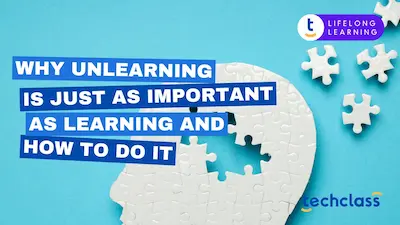
With the daily grind of work and personal responsibilities, a passion project can be a solution to monotony. It provides a low-stakes opportunity to rediscover a sense of purpose and excitement and facilitates learning.
A passion project is something that allows you to explore a personal interest and engage in an activity that brings you joy and fulfillment outside of your regular work or daily responsibilities. Passion projects are focused on personal growth rather than profit, although they can potentially become profitable over time. By pursuing a passion project, you can develop new skills, expand your knowledge, and unlock your creative potential in a personally satisfying way.
But how do you make sure that you turn your project into a learning opportunity? Let’s explore!
The first step is to find inspiration. What excites you? It could be anything–gardening, cooking, coding, photography or writing. The motivation should be to find something that gives you joy outside of your professional responsibilities. It could be your happy place.
Reason?
A passion project like this will keep you engaged and motivated. It will offer you a mental break from your daily grind by offering you a sense of balance.
The next step after identifying your passion project is to somehow connect it to your career. This doesn't necessarily mean that you make that hobby a full-time job, but the aim is to find ways you can leverage the skills and insights gained from the project into your work.
Let's consider a few examples:
If you work in the marketing department of your company and love photography, you can use your skills to enhance your company's visual content. Or maybe you love coding. You can develop small apps and tools to help you streamline your workflow or solve certain problems at work.
Always set goals. This applies not only to passion projects but to every aspect of your learning journey. Define what you want to achieve from the project and set milestones to track your progress. An effective way to do this is to break down your goals into smaller manageable chunks. This will make the project less overwhelming, and you will get to celebrate the small victories that will keep you motivated.
Document your successes. It helps you track your progress, so some people like to keep a blog or write journals. Writing about what they learn and how far along their journey is really helpful.
How to do it: Start a blog, maintain a journal, or create a portfolio showcasing your work. This documentation can also function as a nice addition to your professional portfolio, displaying that you are always looking for new ways of learning and personal growth.
Don't work in isolation; surround yourself with colleagues. Post your projects to colleagues, mentors, or any online community. Getting feedback or working with others can bring out different ideas and perspectives, which helps make your learning experience even more beneficial. Constructive feedback helps improve skills, and collaboration introduces new tools and techniques that may not have been considered previously.
After finishing your projects, the end goal is always to make it work for you professionally as well. Reflect on how you can apply what you're learning to work. For example, if you have been working on a writing project, so use what you learned in skilled writing and add it to reports, presentations, or any communication. If you have created a new app, figure out how it can help automate parts of your work or solve problems in the workplace.
Make it a daily habit to reflect on the lessons you've learned. This will help you stay focused on your career goals and ensure that your passion projects provide valuable experience that will help you grow professionally. Review your personal identity handbook regularly, on a monthly or quarterly basis, and update it as needed. This will ensure that your projects remain relevant and aligned with your long-term direction.
In conclusion, turning your passion projects into learning experiences is not just a way to acquire skills; it can also enhance and diversify your professional life, bringing you joy. Integrating your work with your personal passions can lead to a more balanced, exciting, and fulfilling professional life. So, indulge in your passions, set clear goals, and learn from feedback on paths that aren't working to recover quickly. Personal projects can open the door to numerous opportunities.
Happy learning!
While the benefits of passion projects are clear, bridging the gap between personal exploration and professional recognition requires a structured environment. Tracking diverse learning milestones and gathering meaningful feedback often becomes fragmented without a central hub for development.
TechClass provides the modern infrastructure needed to turn these individual learning journeys into documented professional growth. By utilizing features like the Digital Content Studio for project portfolios and Social Learning tools for peer feedback, employees can showcase their new skills in a way that is visible and valuable to the organization. This approach transforms informal learning into a measurable asset, helping companies foster a culture of curiosity while ensuring every new skill is aligned with long-term career goals.
.webp)

